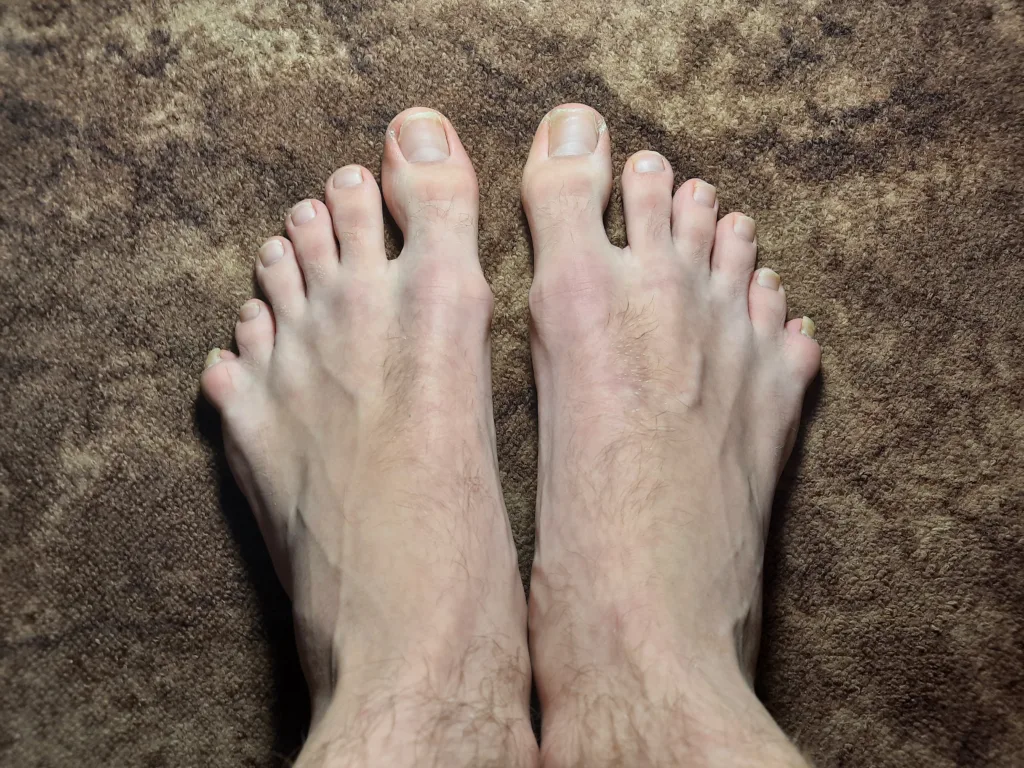Polydactyly, a condition characterized by the presence of extra digits, often fascinates scientists and spiritual seekers alike. When this genetic anomaly manifests as six toes on one or both feet, it not only sparks interest from a biological perspective, but also ignites curiosity regarding its spiritual implications. This intriguing condition, occurring in approximately one in every 700 to 1,000 newborns, transforms ordinary human appendages into extraordinary examples of genetic diversity.
In the realm of the spiritual, the significance of six toes can be traced back to various cultural and religious beliefs. Some cultures regard this unusual feature as a sign of good fortune, considering individuals with six toes to be specially blessed. This perspective may have its roots in palmistry, the ancient art of interpreting lines and features on the hands to predict a person’s fate or character. Palmists often regard extra digits as indicators of luck and prosperity, lending a mystical aura to the biological condition of polydactyly.

In some societies, an individual with six toes is seen as a harbinger of change or as a person destined for greatness. This belief can be traced back to numerous legends and myths in which heroes or gods were portrayed with extra digits. Such individuals were said to possess unique abilities or extraordinary talents, further associating the presence of a sixth toe with supernatural or divine influences.
However, it’s crucial to remember that these interpretations are subjective and heavily reliant on cultural and personal beliefs. From a scientific standpoint, polydactyly is a genetic condition that can arise due to various factors, including family history or random genetic mutations. Regardless, the intriguing blend of science and spirituality surrounding six toes continues to captivate our collective curiosity, making polydactyly a fascinating point of discussion in both the medical and metaphysical realms.
Understanding the Meaning of 6 Toes
Having six toes, also known as polydactyly, is a condition where a person is born with more than the usual number of digits on their feet or hands. This means that instead of having five toes on a foot, a person with this condition has six. It’s a fairly common birth difference, occurring in approximately one out of every 500 to 1,000 babies. It’s important to note that having an extra toe doesn’t usually cause any health problems, and it can often be removed if it interferes with the person’s ability to walk or wear shoes.
Exploring the Belief of Polydactyly as a Symbol of Good Luck
In the realm of palmistry and certain cultural beliefs, polydactyly, or the occurrence of more than the usual number of fingers or toes, is often considered as a sign of good luck or fortune. However, it’s important to note that this is more of a superstition and personal belief rather than a universally accepted truth. From a scientific perspective, polydactyly is a genetic condition that can be inherited or occur as a random genetic mutation. Whether it is considered ‘lucky’ or not would depend entirely on individual or cultural interpretation.
The Significance of Having Six Fingers: Exploring the Meaning Behind This Physical Trait
When someone has six fingers, it means they have a condition known as polydactyly. Polydactyly is a congenital physical anomaly in which an individual is born with more than the usual number of digits on their hands or feet. This condition can manifest in various ways, sometimes the extra digit is fully formed and functional, other times it might be a small, soft tissue growth. The cause of polydactyly is usually genetic, and it can occur on its own or as part of a genetic syndrome. It is important to note that while it may be unusual, having six fingers is usually not harmful to the individual’s overall health.
The Unique Condition of Having 6 Toes: What It Is Called and How It Affects Individuals
The condition of being born with six toes is known as Hexadactyly. This falls under a broader condition known as Polydactyly, which refers to having more than the usual number of fingers or toes.
Conclusion
Polydactyly is a genetic condition that results in an individual being born with more than the standard number of digits on their hands or feet. This condition, meaning the presence of six or more fingers or toes, is more common than one might think, affecting approximately one in every 700 to 1,000 newborns. While it is often viewed as a physical anomaly or irregularity, it is, in fact, just a result of genetic variance. Some cultures and beliefs even regard such individuals as particularly fortunate or blessed. Despite its unusual nature, polydactyly does not usually impede the functionality of the hand or foot and in most cases, does not require any medical intervention unless the extra digit is poorly formed or attached. Therefore, while polydactyly might be considered extraordinary, it is a relatively common and typically harmless genetic condition.
